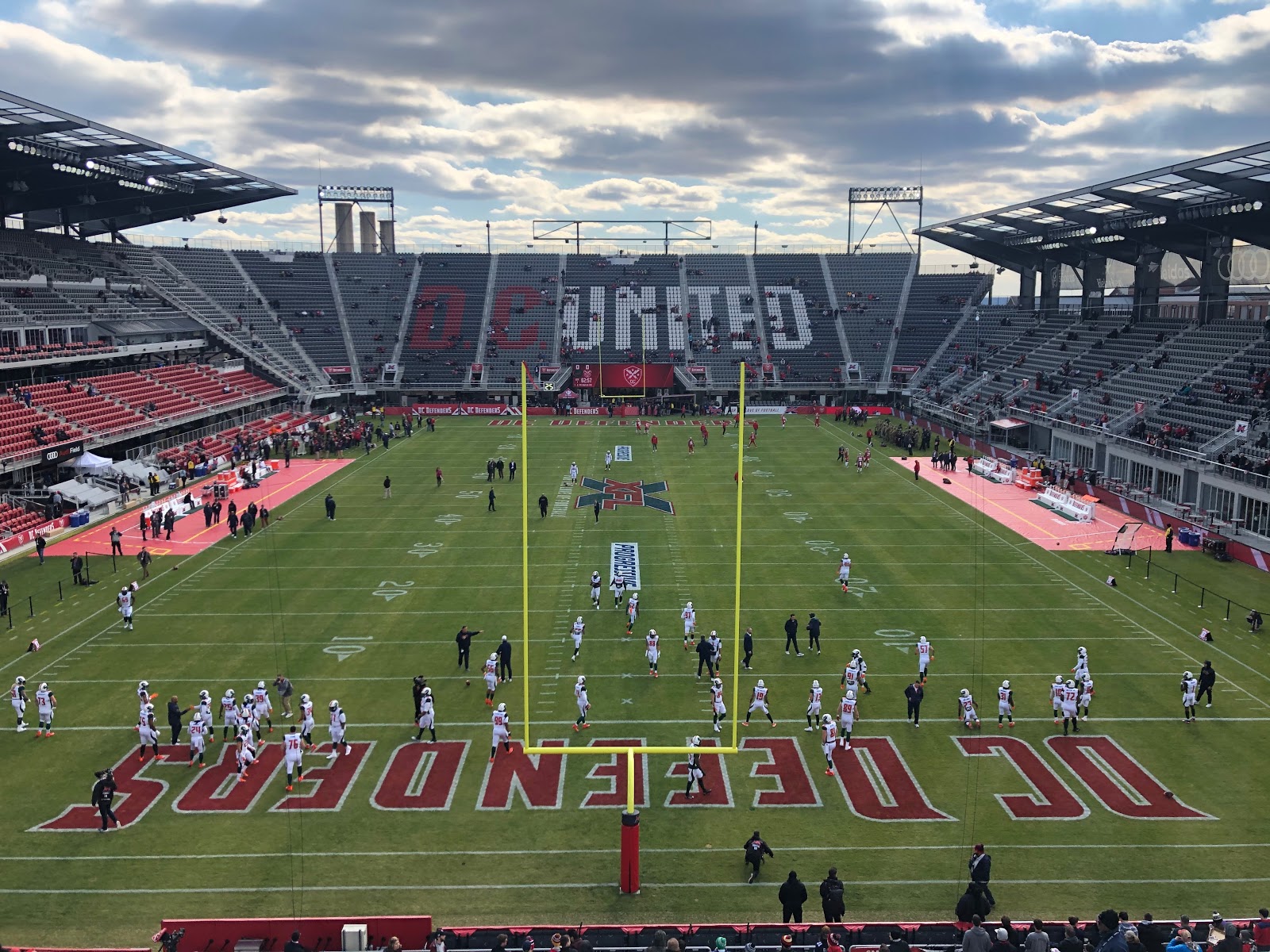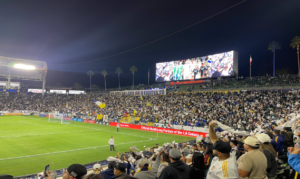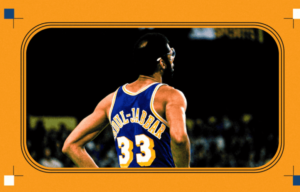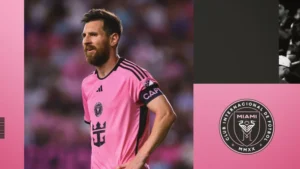Birth of a League: The Dawn of the XFL

Audi Field an hour before kick-off of the first XFL game in 19 years.
Image courtesy of Garrett Farrell
By Garrett Farrell
This past Saturday, February 8, D.C.’s newest football team, the Defenders, began the inaugural season of the XFL. The 2:00 p.m. kickoff at Audi Field marked the culmination of years of planning, experimenting, and gambling.
The XFL is not an entirely new league; in fact, the concept is older than some freshmen. The league played its only other season in 2001, and promptly ceased football operations due to lack of funding and NBC announcing that it would no longer air games. The league hovered in limbo until 2018 when owner Vince McMahon announced that he would be reviving the league under some major structural changes.
The original XFL was owned by, and operated under, WWE wrestling. The league encouraged extreme violence in an effort to keep up with WWE’s brand, and as such caused heavy injuries to all teams involved, greatly diminishing the quality of play. McMahon, having learned from his mistakes, made the new league independent of WWE, and made rule changes to keep the players safe, as well as enhance the fans’ experience.
The XFL made several changes to conventional football that it hopes will elevate the quality of play in the league. The most notable change in rules is how points after a touchdown are scored. In the NFL there are only two options a team may attempt after scoring a touchdown: the more common kick for a single point, and the two-point conversion. The XFL made radical changes to this format, eliminating the option of kicking all together. Instead, a team has the option to run a play from the 2-yard-line for a single point, the 5-yard-line for two points, and the 10-yard-line for three points.
Additional changes have been made to special teams plays, primarily to encourage the return team to run the ball back after a kick or punt and to discourage the kicking team from attempting to get a touchback.The final result of these years of planning was put on full display with the official beginning of the first season of the new XFL.
The D.C. Defenders hosted the Seattle Dragons in the inaugural game of the new XFL; the game was played in front of a crowd that was near Audi Field’s capacity, with very few empty seats visible. The crowd was anxious to begin play, as the league’s marketing strategy seemed to pay off; by primarily targeting regions that have either had underperforming teams for a long time, such as Washington, or been jilted by owners of NFL teams, such as St. Louis, the XFL hoped to ensure high ticket sales and high energy crowds for their teams.
The game between the Defenders and the Dragons was everything for which league executives could have hoped. The first two quarters of the game were a back and forth affair, with both teams making plays on offense and defense to go into halftime with the Defenders down 12-13.
After half-time, the game was entirely Defenders, with a single drive by Seattle being the exception. The Defenders scored four times in rapid succession in the third quarter to take a lead of 31-19, with two of three touchdowns coming off of long passes from Quarterback Cardale Jones, and the third coming from an interception returned for a touchdown.
With the game televised on NBC Sports, fans of football from all across the DMV were able to tune in to watch the game, like sophomore International Economics and Finance major Scott Sander
“I think the quality wasn’t as good as NFL football… but there were various different experiments that brought different levels of excitement to the game,” said Sander, when asked about his thoughts on the XFL’s first week of play. “I hope that it survives into the future … ultimately I hope that some ideas are applied to the NFL.”
While the XFL is removed from the NFL in terms of quality of play at the present, there is still a long season ahead which may see the further maturation of both players and coaches. This may result in the quality discrepancy between the two leagues diminishing, and a better game being played for the fans in all respects.
The Defenders play home games on Saturday, February 15; Sunday, March 8; Sunday, March 15; and Saturday, March 28. Tickets can be purchased on any major ticket-buying platform.








